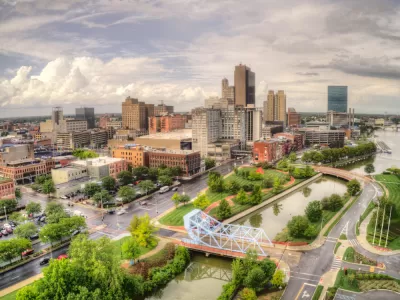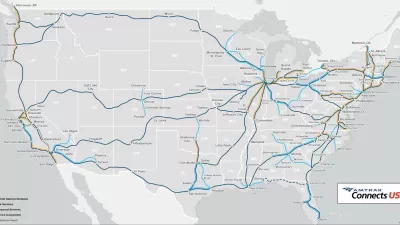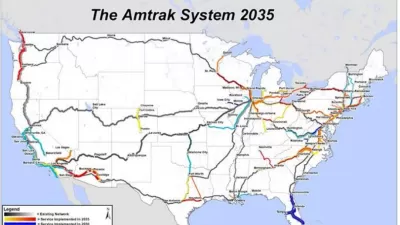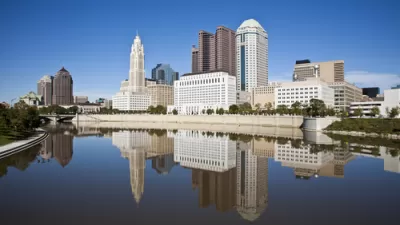Two pieces of legislation signed by Gov. DeWine promote investment in "legacy" cities.

Two state senate bills recently signed by Ohio's Governor Mike DeWine incentivize investment and development in urban cores. Senate Bill 39 creates a tax credit for insurance companies that invest in Transformational Mixed Use Development projects, and Senate Bill 312 authorizes raising up to $5 million through intrastate equity crowdfunding for new businesses. Legislators hope the new laws will spur development in Ohio's downtowns and revitalize stagnant cities with new construction and new business ventures.
To benefit from SB 39's new tax credit, capped at 10%, projects must "have the potential to have a significant economic impact on the project site and surrounding communities," cost over $50 million, and include mixed uses. HB 312 lets Ohio-based businesses crowdfund from small investors in the state, with investments capped at $10,000.
The Greater Ohio Policy Center praised the bills as a useful step for "assisting Ohio’s legacy cities rebound from decades of decline," expressing optimism that the new legislation will help create jobs and bring new industries to the state. With new incentives to redevelop fading downtown cores, writes Mary Vanac, Ohio's skylines could see drastic changes in the next few years.
FULL STORY: Cincinnati's skyline could dramatically change under legislation signed by DeWine

Study: Maui’s Plan to Convert Vacation Rentals to Long-Term Housing Could Cause Nearly $1 Billion Economic Loss
The plan would reduce visitor accommodation by 25,% resulting in 1,900 jobs lost.

North Texas Transit Leaders Tout Benefits of TOD for Growing Region
At a summit focused on transit-oriented development, policymakers discussed how North Texas’ expanded light rail system can serve as a tool for economic growth.

Why Should We Subsidize Public Transportation?
Many public transit agencies face financial stress due to rising costs, declining fare revenue, and declining subsidies. Transit advocates must provide a strong business case for increasing public transit funding.

How to Make US Trains Faster
Changes to boarding platforms and a switch to electric trains could improve U.S. passenger rail service without the added cost of high-speed rail.

Columbia’s Revitalized ‘Loop’ Is a Hub for Local Entrepreneurs
A focus on small businesses is helping a commercial corridor in Columbia, Missouri thrive.

Invasive Insect Threatens Minnesota’s Ash Forests
The Emerald Ash Borer is a rapidly spreading invasive pest threatening Minnesota’s ash trees, and homeowners are encouraged to plant diverse replacement species, avoid moving ash firewood, and monitor for signs of infestation.
Urban Design for Planners 1: Software Tools
This six-course series explores essential urban design concepts using open source software and equips planners with the tools they need to participate fully in the urban design process.
Planning for Universal Design
Learn the tools for implementing Universal Design in planning regulations.
Ascent Environmental
Borough of Carlisle
Institute for Housing and Urban Development Studies (IHS)
City of Grandview
Harvard GSD Executive Education
Toledo-Lucas County Plan Commissions
Salt Lake City
NYU Wagner Graduate School of Public Service





























